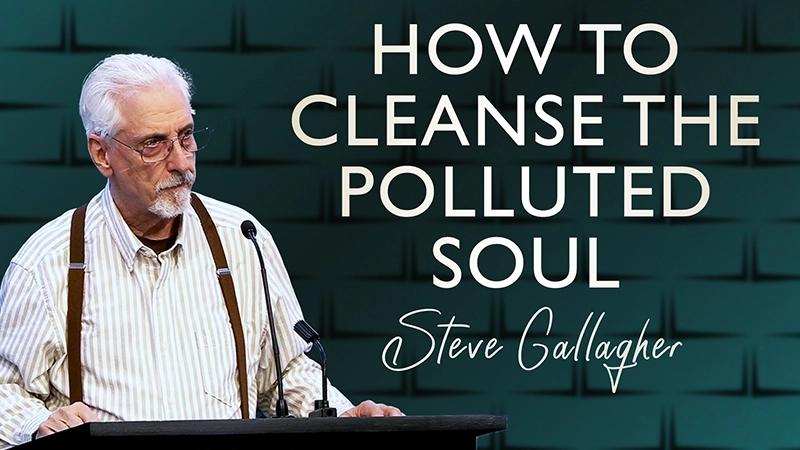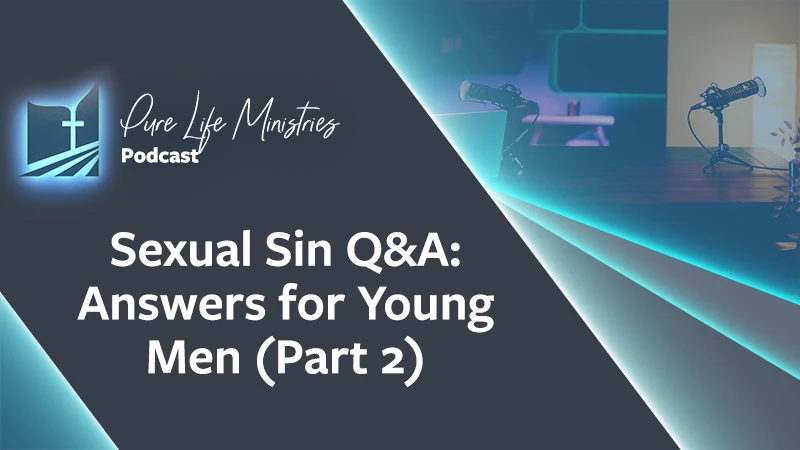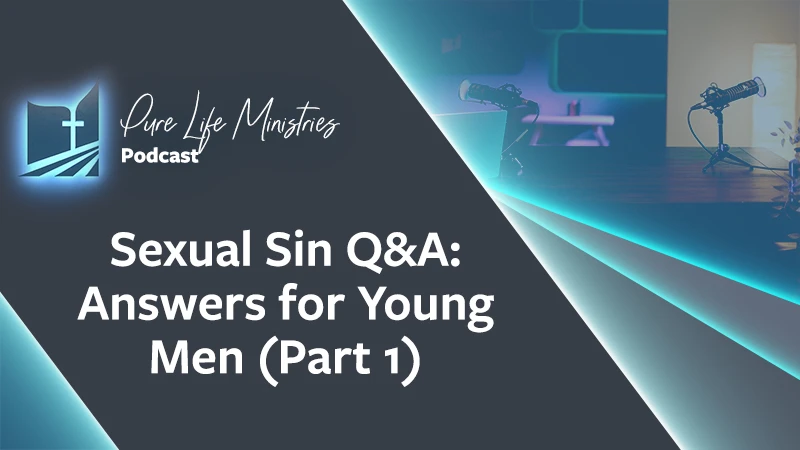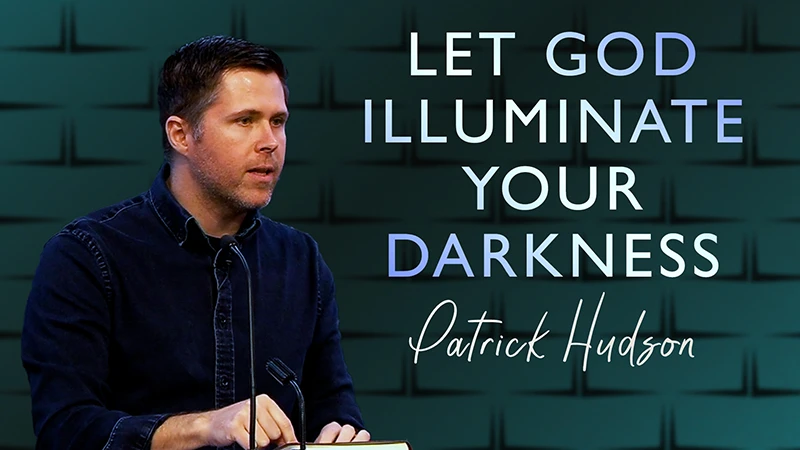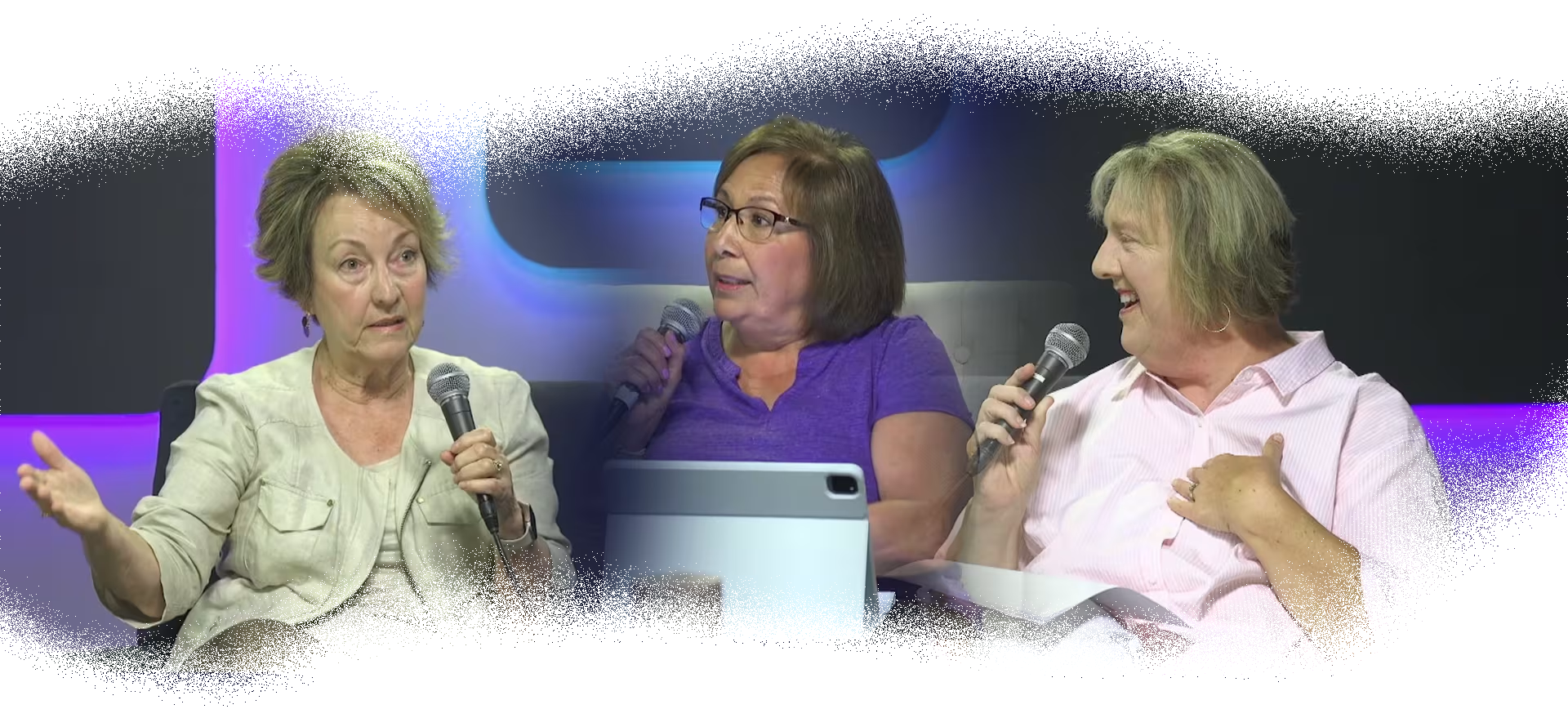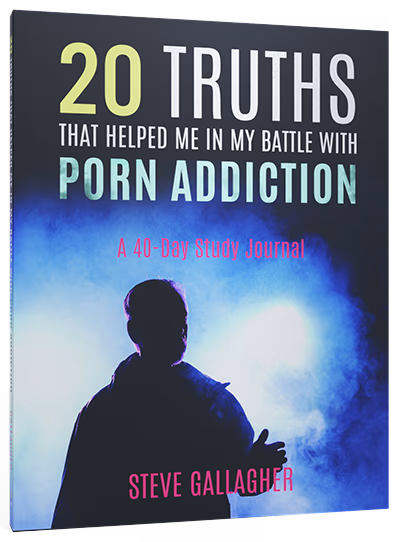
Hiding Your Sin Won't Protect Your Wife (Part 2)
People living in habitual sin often believe that their sin only affects them. They deceive themselves into believing it won’t harm family and friends. But this isn't true practically, and it isn't true spiritually or biblically either. In part two of our interview with Dustin and Brittany Renz we discuss how hidden sin affects a marriage and some of the important aspects of rebuilding a broken marriage.
If you haven’t already read part one, you can find the link to that article below. (from Podcast Episode #462 - Husbands, It's Time to Be Honest)
Click here to check out Hiding Your Sin Won't Protect Your Wife (Part 1)
Patrick: Dustin and Brittany, today we’re continuing our discussion on how Dustin’s double life affected your marriage and how important honesty and transparency are in a marriage. I think we would all say that it is worth it to bring our sin out into the light. The consequences we have to walk through are worth the freedom and the joy of the Lord in our relationships with others. But I think that a lot of people are going to hold out their hand and try to resist that moment. So, if there was someone that you knew was hiding sin and being dishonest with their wives, how would you counsel them considering your own experience with hiding sin?
Dustin: When I look back, I had always told myself I was going to get free between me and God. It wasn't that I was just going to blatantly live in sin, but me and God are going to get this figured out between me and Him. I've counseled people before in that place who don't want to let it all out in the open and my advice to them is if it works getting free between you and God, then why aren't you free? How many years have you been struggling with this? 5 years? 10 years? If you want to be free, the only way to do it is to confess your sin.
When I look back, I don't think it was possible for me to be free until I let Brittany know and let things out in the open. So, in some ways, all the painful consequences that I had to walk through was the only pathway to freedom. The only reason it was so destructive and painful was because I waited so long. So, I always let people know, unfortunately you can't go back in time and fix the damage that has been done from your sin. I couldn't go back to the beginning of our marriage when we were dating and decide to be real, but I could make the choice that I did and let it all out when I did. Adding more days, months, and years just causes more and more pain, so why not just deal with it now and get it out in the open so that you can be free?
Brittany: Also, I think it would have helped back then if he would have gone to a pastor or a mature believer that he could confess his sin to. He could have told someone that he wanted to get free and maybe they could have helped him walk through some things before confessing to me.
Patrick: As we're talking about this Dustin, it reminds me of the sermon you delivered to the men in our Residential Program. You were talking to them about the story of Achan out of the book of Joshua. He was hiding his sin. But it didn't just affect him. It didn't even just affect his family. His sin affected the whole Israelite community. You made some pretty strong statements to the guys about that. I'm wondering if you can relate that to your marriage and the conversation we're having.
Dustin: I mentioned in that message something Paul talks about in Galatians. He said that if you sow to the flesh, you'll reap corruption and that if you sow to the spirit, you'll reap everlasting life. It was the first time I really thought of it this way when I was preparing that message, but one of the points was that as believers, or really anyone, we all have control over what kind of seed we sow. We can choose to sow to the flesh or to sow to the spirit. But we have no control over the harvest that comes. So, the decision we make, and the repercussions and consequences of those decisions are all going to play out in ways that affect others. It’s like a ripple effect that we can't choose the outcome of. You can't control it or keep it from occurring.
The lie that a lot of people believe is that their sin only affects themselves. They may even believe that they can deal with it between them and God and just move on. They also may think that it doesn't even affect their wife or kids. That's not biblically true. When you look at someone's life, it's obvious that their consequences and their decisions have a very large impact on the people around them whether they want them to or not.
Patrick: We've already kind of touched on one of the questions I wanted to ask, which is, what does the Word of God have to say about living honestly and transparently in a relationship?
Dustin: Yeah. We talked a little bit about the theme of walking in the light as He is in the light. In 1 John there is a contrast made between darkness and light. We can't live in darkness and claim to know God. That should bring conviction to anybody who claims to be a believer and yet is living in the darkness. So, I think part of the lifestyle someone has to develop, even after their first major confession, is an ongoing process or confession and repentance. It's not just a one-time thing where you come clean and then you go back in to hiding. You have to learn how to be an open book with the people close to you in your life. Not necessarily the whole world, but certainly your spouse and your pastor or spiritual authority in your life.
I really love how Paul says in Romans 12:9 that we should let love be sincere. That word sincere is actually translated in the Greek anupokritos, which means “without hypocrisy.” In essence, Paul is giving an exhortation to us that love should be without hypocrisy. You should love that way, especially in a marriage relationship. That should be the closest relationship that you have on the earth. Your spouse is the person that you are the most intimate with. You can't truly love your spouse and have a true marital bond if you're living with a mask on. Biblically it doesn't make sense and practically it doesn't either.
{{blog-bwalk="/blog-ads-storage"}}
Patrick: As you talk about learning to live in the light and learning to love without hypocrisy, obviously that didn't happen right away after you confessed. That probably had to play itself out when you returned from the program and got back into rebuilding your marriage. Can you each talk about what that time was like and some of the struggles and issues that you had to walk through to learn to build honest communication with each other?
Brittany: I could see that Dustin was being more open and honest after coming back from the Residential Program and trust was something that had to develop over a lot of time. Trust doesn't happen overnight. I had to see that he was being trustworthy and the more that he would communicate with me about anything that he was struggling with or just difficulties that he was having, I saw that he was being more open and honest about his life in general. Also, he was getting help from our pastor and other mature believers, so there was accountability factored in there as well. I couldn't be his accountability partner because I still had all of my emotions and thoughts involved as we were going through this process. But if I had to or wanted to ask him a question, I knew he was able to answer me honestly and able to open up and be honest about what he was dealing with or struggling with.
Dustin: For me, I think the process was very challenging because I had spent years trying to learn how to deceive and manipulate. That was my lifestyle and I had become really good at it. So to learn to live outwardly and to talk about what was going on inside, especially if I was having a struggle with something, was completely contrary to what I taught myself to do. So it took a while. Even with pastors and other people aside from my wife, I had to learn to be open and honest. There were times where I felt like I was really struggling and I would tell Brittany that I needed her to pray for me. But one thing I found for me is that I would get really defensive if Brittany would ask me, “Hey, how are you doing?” If I was doing well, it would be frustrating because I kept feeling like she didn’t trust me yet.
So, I had to work through that and I had to realize that I was the one who caused all these problems. Who was I to get upset? But when you start to have a good track record, it can become difficult not to rise up internally when you are questioned about if you are struggling. I'm used to being questioned now, because now I know that I'm not above temptation and I actually invite people into my life who can ask those tough questions. Initially I remember often responding like, “I’m doing good. Don't worry about me, I’m fine.” And I had to work through some of my selfishness and self-sufficiency during that period of time.
Brittany: And on the flip side, when I would ask him those questions and he did admit something that he was struggling with or something that was difficult, I wanted to get real upset myself and say, “Why are you still dealing with this? I thought you overcame these things or got past them.” But I had to realize that he had to take a lot of time to get these sins worked out of his life and to get the overwhelming temptation out of his life by continually walking in freedom while being open and honest. So, I had to deal with things myself internally to be a support, not to pat him on the back and say, “Oh better luck next time.” I just needed to be a support where I realized that he might mess up and he might make a mistake, but he was walking in the light and going through a process of transformation.
Patrick: Was it challenging for you at first to really believe that he wouldn’t go back to hiding everything and to really believe that he was on the right track? Did you have to fight to believe that about him?
Brittany: Oh yeah. A lot of doubt at first and a lot of distrust. A lot of wondering if he is just saying what I wanted to hear or if he was saying the truth. Especially in the beginning, because I would think back on when he opened up and confessed all of his sin and I didn't even know anything was going on in his life at that time. I would get hit with the thought of, “I already believed the lie once. Am I going to believe the lie again?” So, the time factor was big because it took a lot of time to trust him again and to believe what he was saying. But I could see the more that he was walking in freedom and walking in the light, I would begin to trust him more and see that he was walking out the life that he was claiming to be living now.
Dustin: So, when we look at the whole process during that time, it was messy, difficult, and challenging. It had its ups and downs emotionally as well. It wasn't just like we flipped a switch and everything was perfect. It took a really a long time. Some of the battles still continue to this day, but we've grown a ton, so things are a lot different. Initially it was really difficult for both of us, but the Lord gave us the grace to navigate through it and get us to a place where trust could be built into our relationship. And as I continued to walk in transparency, we were able to get to the strong relationship that we have today.
Patrick: I want to switch gears as we close today because when it came to rebuilding your marriage you guys talked a lot about the process of learning to be honest and learning over time to rebuild trust, and how that involved your communication with one another about things going on in your life. But I can imagine that there were other factors of building a healthy marriage centered in God that would over time help you guys to feel closer and more vulnerable with one another. So, is there anything else you would like to share about how you rebuilt your marriage as we close today?
Dustin: I think that each of us getting alone with the Lord to pray and get into the Word consistently has been an essential part of rebuilding our marriage. We get together to pray and read the Word as well. We’ve gone through marriage books together and we’ve watched teaching videos just to learn. Spending time doing those things on a regular basis has been helpful. I think one of the biggest things for me that Brittany referenced earlier is that I've got people in my life that I meet with on a regular basis. I've got a couple of men that I am accountable to that I meet with once a week and one of the questions that I'm asked every week is, “How's your marriage doing? How have you been treating your wife? What kind of issues are you working through?” So, I think for her, knowing that I have people I'm going to that I'm being transparent with, gives her a peace about where I'm at in my walk with the Lord. Overall, it has been a huge advantage for me as a married man to have people to ask those questions. Because every married man should be able to be held accountable for the way that they’re acting and the way that they are treating their wife.
Brittany: Yeah. And we're able to do devotions together and this isn't in place of personal devotions, but we're able to read a marriage devotional or listen to a podcast or something that will build our marriage up. We’re also able to pray together and sometimes just go on dates together where we are able to spend time building our relationship and have uninterrupted time to more deeply communicate with each other about our lives.



